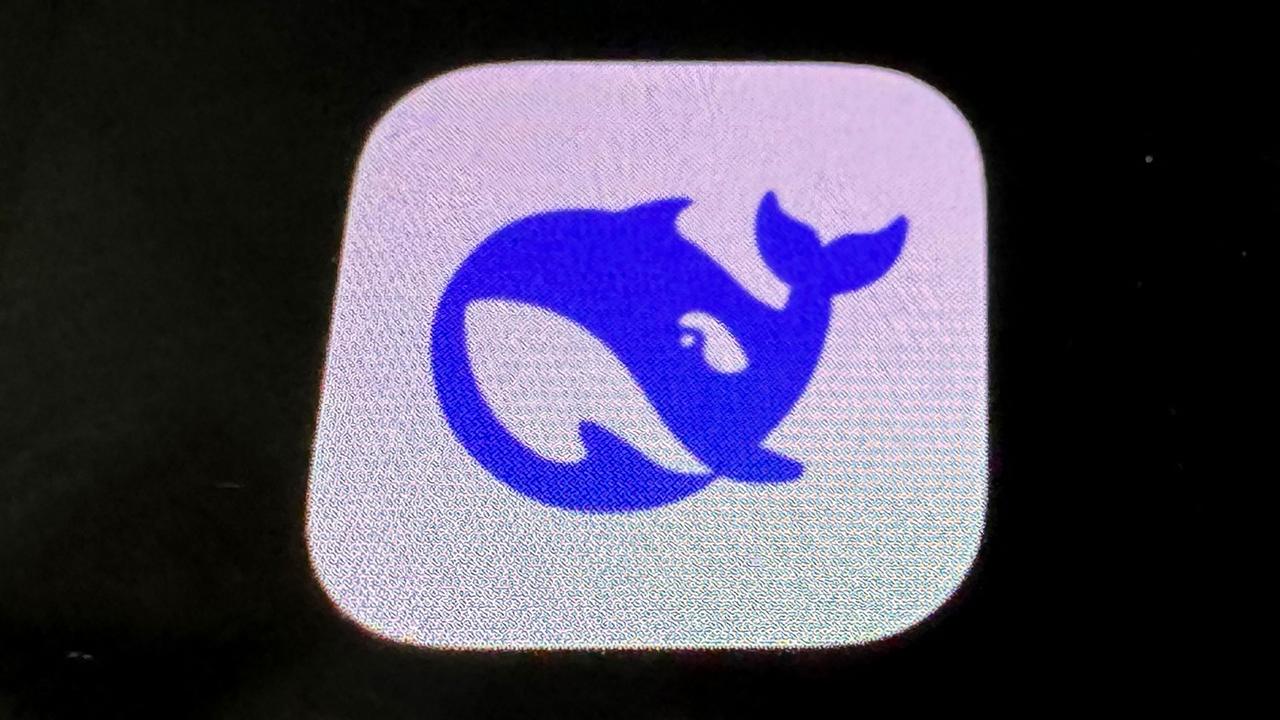‘AOC’ plays video games in poll push
The controversial Democratic congresswoman attracted nearly 500,000 viewers, watching her play ‘Among Us’ for hours on streaming service Twitch.
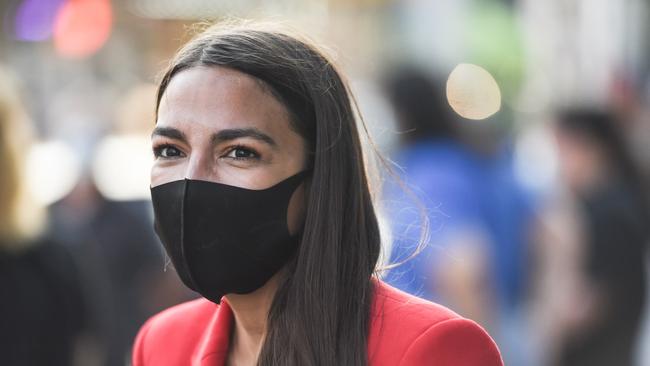
Hello and welcome to The Download, The Australian’s technology blog for the latest tech news.
David Swan 4.20pm: ‘AOC’ plays video games in poll push
Democratic congresswoman Alexandria Ocasio-Cortez has attracted nearly 500,000 live viewers, who watched her play video games online as part of an effort to promote voting.
‘AOC’ played popular online game ‘Among Us’ with others including fellow congresswoman Ilhan Omar, and seemingly broke a record for the most-viewed individual Twitch stream.
At the time of writing, AOC is still currently streaming.
David Swan 4.00pm: Pause Fest returns for 2021
Described as the world’s leading festival for business and creativity, Pause Fest has confirmed the event will run in 2021, no matter what the pandemic brings.
Pause founder and CEO George Hedon said the event - named Changes - will move from Melbourne for the first time to become a fully online event, to run between March 1 and 12, 2021.
“Pause Fest has always been at the forefront of what is new and exciting,” Mr Hedon said.
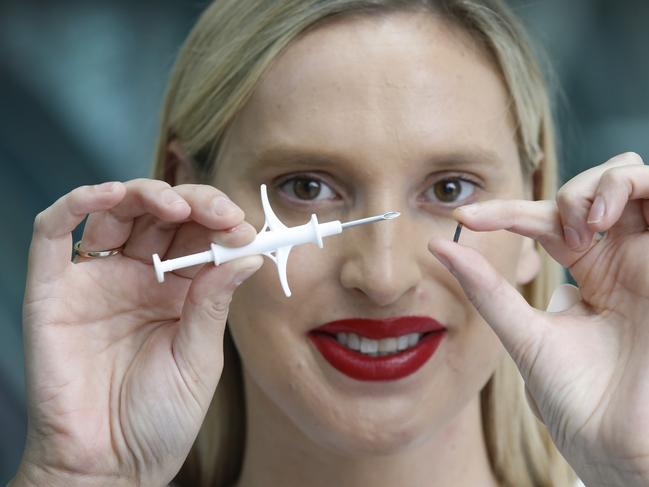
“Moving the event online doesn’t mean it’s Pause Fest on Zoom – no way. Next year’s festival is going to be unlike any other virtual event experience. We remain committed to delivering a festival that is as bespoke and awe-inspiring as the years before.”
He added that 20,000 tickets are being made for the festival, which he anticipates will be truly global for the first time. His organisation is also donating up to 10,000 tickets to the not-for-profit (NFP) sector.
“Pause Fest has always strived to bring innovation into the everyday and for everyone. Technology opens up so many new opportunities to enhance accessibility. Moving the festival online totally transforms how many people we can reach out to. Next year, we can truly welcome anyone and everyone to Pause Fest.
“This isn’t just a nice, warm, fuzzy idea. We mean it! For the 2021 event, we’re giving away up to 10,000 tickets to our partners in the not-for-profit sector, worth $750,000. These will go out to a range of backgrounds that have been disadvantaged, deterred or discriminated from fully participating in the world of tech and innovation. We’re all about democratising access to innovation.
The festival is expecting speakers from Google, HyperloopTT, NASA, Afterpay, Netflix and more.
David Swan 2.20pm: ’A deeply flawed lawsuit’
Google has responded to the Department of Justice’s blockbuster legal action, describing its case as a “deeply flawed lawsuit that would do nothing to help consumers.”
The tech giant’s SVP of global affairs Kent Walker said in a blog post that people “use Google because they choose to, not because they’re forced to, or because they can’t find alternatives.”
The White House is alleging that Google uses anti-competitive tactics to preserve a monopoly for its flagship search engine and related advertising business, illegally choking off potential competition.
Google owns or controls search distribution channels accounting for about 80 per cent of search queries in the US, according to the lawsuit and third-party researchers.
“The Department’s complaint relies on dubious antitrust arguments to criticize our efforts to make Google Search easily available to people,” Mr Walker said in the post.
“Yes, like countless other businesses, we pay to promote our services, just like a cereal brand might pay a supermarket to stock its products at the end of a row or on a shelf at eye level. For digital services, when you first buy a device, it has a kind of home screen “eye level shelf.” On mobile, that shelf is controlled by Apple, as well as companies like AT&T, Verizon, Samsung and LG. On desktop computers, that shelf space is overwhelmingly controlled by Microsoft.
“So, we negotiate agreements with many of those companies for eye-level shelf space. But let‘s be clear—our competitors are readily available too, if you want to use them.
“Our agreements with Apple and other device makers and carriers are no different from the agreements that many other companies have traditionally used to distribute software. Other search engines, including Microsoft’s Bing, compete with us for these agreements. And our agreements have passed repeated antitrust reviews.”
The executive added that “we understand that with our success comes scrutiny, but we stand by our position. American antitrust law is designed to promote innovation and help consumers, not tilt the playing field in favor of particular competitors or make it harder for people to get the services they want. We’re confident that a court will conclude that this suit doesn’t square with either the facts or the law.
“In the meantime, we remain absolutely focused on delivering the free services that help Americans every day. Because that’s what matters most.”
Google is already facing new regulation in Australia, with the ACCC finding the market power of Google and Facebook has distorted the ability of businesses to compete on their merits in advertising, media and a range of other markets.
Mandatory media bargaining legislation is set to be put to parliament before the end of the year.
10.10am: Antitrust lawsuit to probe lucrative Google-Apple deals
Inside Google, they called the scenario “Code Red”, so stark was the prospect of losing the search engine’s lucrative pipeline from Apple’s iPhone. Now that possibility is officially on the table.
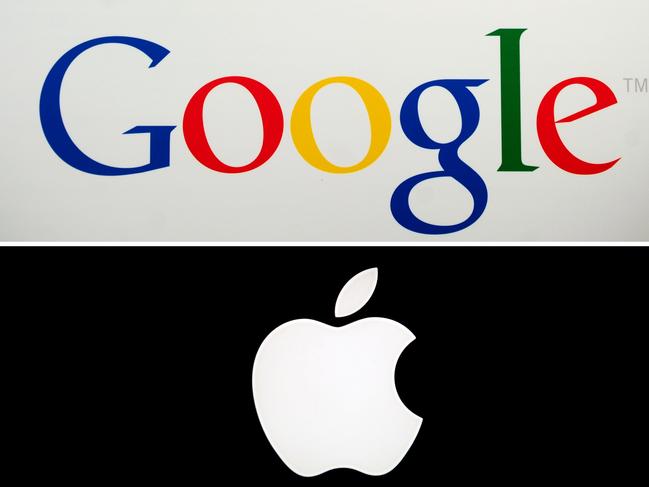
Google’s partnership with Apple is at the heart of the US Department of Justice antitrust lawsuit claiming that the Alphabet unit misused its power in an anticompetitive manner, potentially threatening a major revenue stream for both tech giants.
It has long been known that Google relies on search traffic from Apple’s popular line of phones. Google’s flagship search engine is the preset default on Apple’s Safari phone browser, meaning that when consumers enter a term on their phone, they are automatically fed Google search results — and related advertising.
What’s new is just how central it is to both companies, and to the antitrust case. While the government has stopped short of asking for specific remedies, the prominence of the Apple arrangement in the lawsuit leaves little doubt that the Justice Department will seek to intercede.
The government says that Apple CEO Tim Cook and Google’s CEO Sundar Pichai — neither of whom are named in the lawsuit — met in 2018 to discuss how the companies could work together to drive search-revenue growth.
Afterwards, according to the lawsuit, a senior Apple executive followed up with a Google counterpart with some encouraging words: “Our vision is that we work as if we are one company.”
The companies declined to comment on the alleged meeting. The apparent friendliness is a change — Apple’s late co-founder Steve Jobs and former Google Chief Executive Eric Schmidt famously fell out over Google’s launch of competing mobile software.
Though Google and Apple have been tight-lipped on how much their deal is worth, the lawsuit projects that it accounts for between 15 per cent and 20 per cent of Apple’s annual profits.
That means Google pays as much as $US11bn ($15.6bn), or roughly one-third of Alphabet’s annual profits, to Apple for pole position on the iPhone. In return, Apple-originated search traffic adds up to half of Google search volume, the government says. Google declined to comment on that statistic, and representatives said they weren’t aware of the “Code Red” language included in the lawsuit.
Google said it plans to challenge the lawsuit, and the litigation is expected to drag on for years.
“This lawsuit would do nothing to help consumers,” said Kent Walker, Google’s chief legal officer, in a blog post. “To the contrary, it would artificially prop up lower-quality search alternatives, raise phone prices, and make it harder for people to get the search services they want to use.”
On the Apple partnership he said it was “no different from the agreements that many other companies have traditionally used to distribute software.” The threat to the arrangement between Apple and Google didn’t spook investors. Shares in both companies climbed about 2 per cent on Tuesday after the lawsuit was filed, beating the broader market, as they have done most of the year.
Securing the prime piece of real estate in the Apple ecosystem has had the effect of denying competitors the ability to compete, the government alleged. “Google has almost completely shut-out its competitors from mobile distribution,” the lawsuit said.
The inclusion of Apple in the government lawsuit follows a House subcommittee report that examined Big Tech’s anticompetitive practices that claimed Apple, too, was misusing its power it holds over its iPhone ecosystem, hurting rivals and benefiting itself. Apple disputed the report.
Dow Jones
Chris Griffith 9.30am: Drone maker DJI releases mini camera
Drone maker DJI has always been big on cameras, offering high resolution photography from the sky. It has also experimented with cameras for us earthbound types.
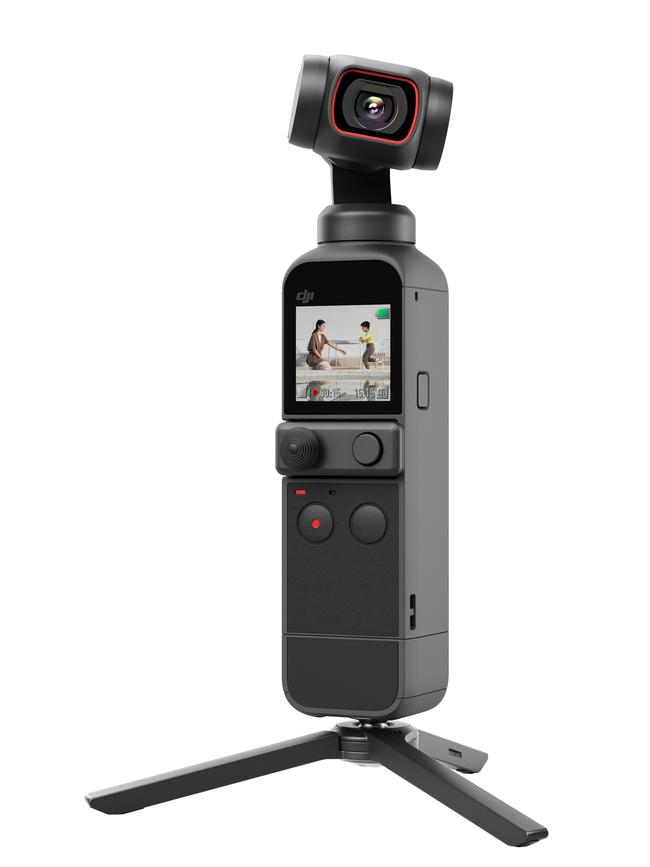
Its latest device is a sequel to the tiny DJI Osmo Pocket camera that it launched in late 2018. The Osmo Pocket 2 is tiny enough to fit in your pocket and takes smooth 4K video and 64MB images, thanks to its 3-axis gimbal, a technology adapted from its drones. There’s now zoom, an upgraded focus feature and the ability to lock on and track moving subjects.
You can use it as a stand-alone stabilised camera connected to your phone, or operate it remotely with wireless accessories. It has a 1/1.7-inch image sensor, a 20mm f/1.8 lens, captures 16MP and 64MP images, and records 4K video at up to 60 frames per second at 100Mbps bitrate.
Other features include slow motion, time lapse, hyper lapse, motion lapse, RAW image capture, panoramas, live streaming and a story mode. It costs $599 with a control stick and mini tripod, and $799 with extra accessories.
8.30am: US government finally files Google antitrust lawsuit
The US Justice Department has filed a long-awaited antitrust lawsuit alleging that Google uses anti-competitive tactics to preserve a monopoly for its flagship search engine and related advertising business, illegally choking off potential competition.
The case, filed in a Washington DC federal court, marks the most aggressive US legal challenge to a company’s dominance in the tech sector in more than two decades, with the potential to shake up Silicon Valley and beyond. It thrusts Google, once a start-up and now a vast conglomerate, into the type of public showdown the company has sought to avoid.
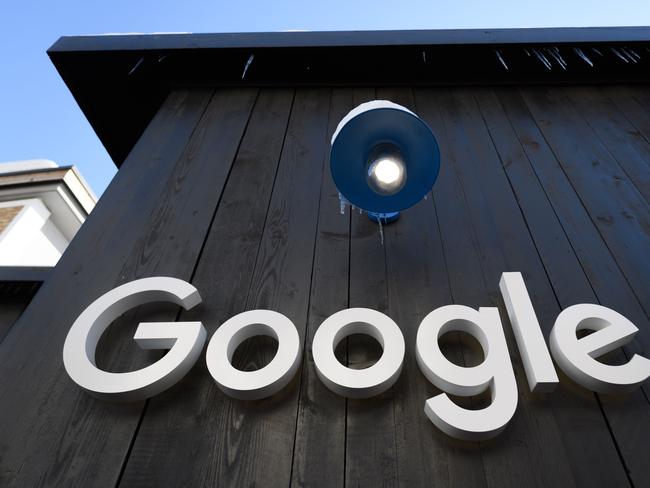
The Justice Department alleges that Google, a unit of Alphabet, maintains its status as gatekeeper to the internet through an unlawful web of exclusionary and interlocking business agreements that shut-out competitors.
The government alleged that Google uses billions of dollars collected from advertisements on its platform to pay for mobile-phone manufacturers, carriers and browsers, like Apple’s Safari, to maintain Google as their preset default search engine, creating a self-reinforcing cycle of dominance.
The upshot is that Google has pole position in search on hundreds of millions of devices in the US, with little opportunity for any other company to make inroads, the government said.
“Google achieved some success in its early years, and no one begrudges that,” deputy US Attorney-General Jeffrey Rosen says. “If the government does not enforce its antitrust laws to enable competition, we could lose the next wave of innovation. If that happens, Americans may never get to see the next Google.”
Google owns or controls search distribution channels accounting for about 80 per cent of search queries in the US, according to the lawsuit and third-party researchers. The government says that effectively leaves no room for competition, resulting in less choice and innovation for consumers, and less competitive prices for advertisers.
The wide-ranging lawsuit included details on alleged deliberations within Google aimed at avoiding antitrust scrutiny. The government quoted Google’s chief economist as telling employees, “We should be careful about what we say in both public and private.”
The lawsuit in particular targets arrangements under which Google’s search application is preloaded, and can’t be deleted, on mobile phones running its popular Android operating system. Google has expanded such agreements over the past year since the Justice Department probe began, the government says, but its complaint doesn’t provide hard data about such tie-ups.
Alphabet publicly discloses that it pays other companies to funnel in search traffic. Analysts estimate that it pays Apple alone about $US10bn ($14.2bn) a year, another deal the government cites as having suppressed competition. The lawsuit cites a note from one senior Apple employee to his Google counterpart: “Our vision is that we work as if we are one company.”
Kent Walker, Google’s chief legal officer, says in a statement that the lawsuit is deeply flawed. “People use Google because they choose to — not because they’re forced to or because they can’t find alternatives,” he says. “Like countless other businesses, we pay to promote our services, just like a cereal brand might pay a supermarket to stock its products at the end of a row or on a shelf at eye level.”
The Wall Street Journal
Chris Griffith 7.30am: iPhone 12, iPhone 12 Pro review
iPhone 12 is a vital upgrade for Apple and its near one billion active users with the iPhone finally supporting 5G cellular connectivity. Apple is late to the party with Samsung, Oppo, and LG among those with 5G phones established in the market last year. But it’s here now and users can see for themselves whether 5G is worthy of the hype around it.

While Australians on 5G can achieve download speeds of hundreds of megabits per second, our US friends are posting photos of their phones achieving speeds of almost 3000 Mbps using a form of 5G called millimetre wave or mmWave not available here yet. However 5G network speeds can be patchy.
I’ve been using two of the four 5G-enabled iPhone 12 models. In Australia you can buy this pair – the 6.1-inch iPhone 12 and 6.1-inch iPhone 12 Pro starting this Friday October 23.
In particular I’ve been trying them on Australia’s 5G network. The iPhone 12 also is capable of some great shots.

